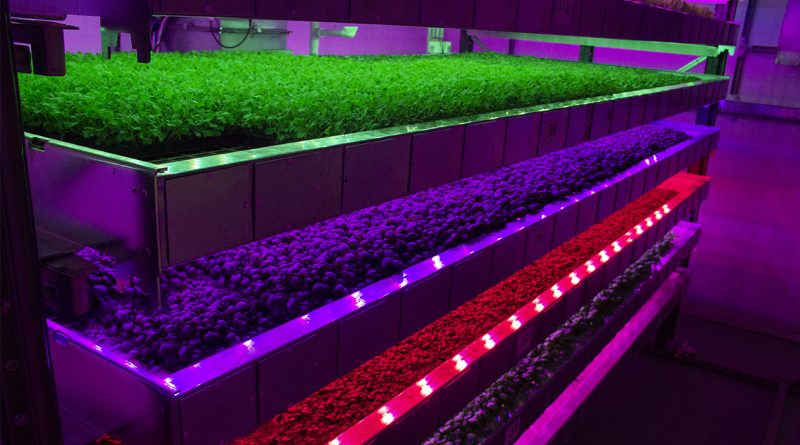Vertical farming: an answer to £6 billion reliance on food imports?
The UK has an overall £6 billion deficit for fruit and vegetables – indoor farming infrastructure promises to reduce the burden
Days of big open fields supplying the nation with crops might be behind us. Vertical farming methods – shielded from weather and disease indoors – like those championed by Intelligent Growth Solutions (IGS) could be the future.
IGS claims it can help future-proof food production and make the UK self-sufficient through home-grown vertical farming technology. This would mean Britain would no longer need to rely on expensive imports that also impact the environment.
The technology, which offers eight-to-12 times more growing space, can currently produce more than 200 varieties of fruit and vegetables. Each crop will also grow six times quicker.
“It’s becoming clear that our food supply chain is broken, and the UK has hit a breaking point,” said Andrew Lloyd, COO at IGS.
“Leaning into new technology and integrating vertical farming into current food production systems will make the UK more resilient to import variations, staffing problems, disease and climate or weather events.
“Not only can our technology address today’s pressing needs, but it enables our farmers to complement their business and diversify into other crops year-round.”
Headquartered in Edinburgh, IGS says more than 100 towers can a single site. A string of structures such as this, it claims, could help alleviate troubles in the UK food supply chain.

What does the science say about vertical farming?
“The UK has an overall £6 billion deficit for fruit and vegetables, which includes £1.7 billion for protected salad crops,” noted Professor Derek Stewart, Director of the Advanced Plant Growth Centre at The James Hutton Institute.
“This could be reversed almost completely with the adoption of vertical farming which has the added bonus of being able to extend shelf-life, enhance nutritional density and the taste of crops, all whilst reducing waste.
“The combined science and technology we use means we can control the growing environment. By linking to renewable energy, this will lead to significant savings in terms of water and fertilizer use. It will allow greater confidence in food safety and will make a major contribution to local food security.”
